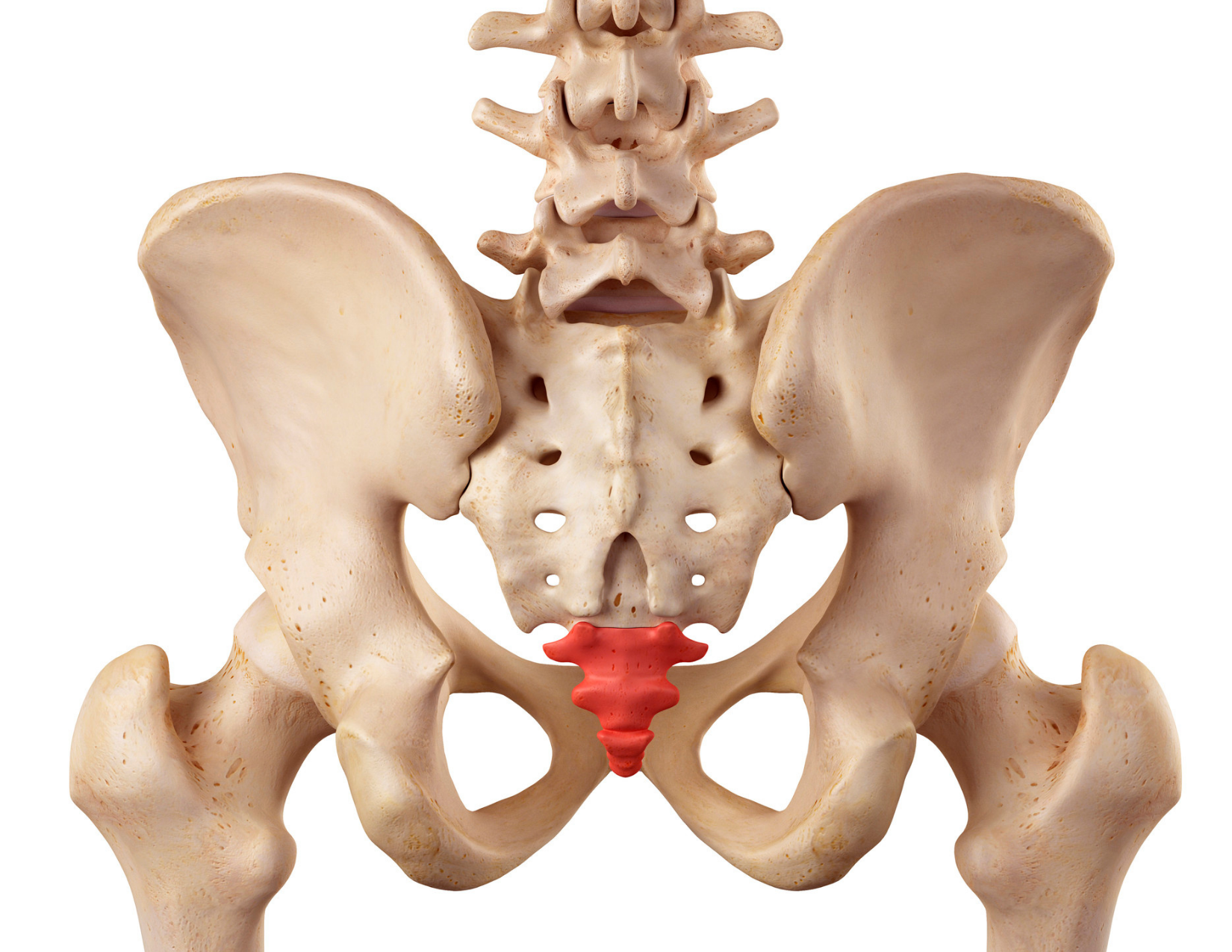
Diagnosing and Treating Coccydynia or Tailbone Pain
Coccydynia, also known as persistent pain in the tailbone, is typically a localized pain that worsens when sitting or engaging in activities that involve putting additional weight or pressure on the end of the spine. Dr. DeCaria, an anesthesiologist and pain physician in Evanston, IL and Glenview, IL has effectively treated coccyx pain from many different conditions through her unique approach that utilizes conventional medicine, as well as integrative and functional medicine. She partners with the patient to develop a plan that works for them.

Coccydynia is usually triggered by some form of trauma to the coccyx region, however the exact cause varies from person to person. It can also be injured during childbirth. For some people, they can easily pinpoint the exact cause(s), while others never really know how it came to be. There are many different treatments for coccyx pain. To manage coccydynia, the goal is to reduce inflammation and tension in the joint and muscles within the surrounding region and provide the patient relief.
Common causes of coccydynia include:
- Childbirth: While anyone can experience coccydynia, it is more common in women. Childbirth is one of the most common causes of coccydynia because towards the end of the pregnancy, the coccyx region becomes more flexible. The flexibility then causes your coccyx and the surrounding spinal region above it to bend for an easier childbirth. Occasionally, the surrounding muscles and ligaments will overstretch, resulting in coccydynia.
- Injury or Strain: A hard fall can lead to a fracture or dislocation of the tailbone, but it can often just result in pain. Repetitive strain injuries can result from sports like cycling or rowing due to the repetitive motion of leaning and stretching. In addition to pain, consistent strain can lead to damage because the surrounding muscles and ligaments can no longer hold the coccyx in the proper position.
- Poor Posture: Since a lot of our common daily activities require sitting, it is important to be aware of your posture, even while doing things like driving. Sitting in an uncomfortable or awkward position for a long time can put so much strain or pressure on your coccyx. This pressure can cause pain and discomfort, and may get worse.
- Weight: Being over or under a healthy weight for your age and height can cause health problems. Being overweight can put more pressure on your coccyx while sitting (see above!), leading to worsening coccydynia. Being underweight can prevent the coccyx from rubbing, as it is supposed to, against the surrounding tissues due to the likely less fat in the area.
- Age: Over time the small cartilage discs that support the coccyx, along with the coccyx bones themselves, can wear down or become more tightly fused together. These structural changes can put pressure on the coccyx, leading to coccydynia.
There are some self-care measures you can take to begin relieving your pain:
- Using a special cushion to reduce pressure on your tailbone can reduce pain, especially while driving or working at a desk
- Avoid long periods of sitting, or inactivity
- Lean forward, or at least with straight back posture, while seated
- Wear loose fitting clothes. Avoid tight pants that increase pressure on your tailbone
- Use ice or heating pads on your tailbone area
- If your pain increases while using the bathroom, consider trying laxatives. Laxatives are typically used to treat constipation
Common coccydynia treatments include:
- Physical therapy is a very common form of rehabilitation for coccydynia. A physical therapist can assist you by providing an individualized exercise routine to complete, both in the clinic and at home. These exercises are tailored to your specific pain to improve your overall flexibility, endurance, and strength, and to minimize pain.
- Steroid Injections are a non-invasive treatment option for patients who are struggling from pain. This procedure, a coccyx steroid injection, can temporarily relieve pain by administering an anti-inflammatory steroid using X-ray guided fluoroscopy. Dr. DeCaria has extensive medical training and experience in treating chronic pain through injections for tailbone pain.
- Medications come in a variety of forms and can help coccydynia in different ways. Anti-inflammatory medications can decrease your pain by reducing inflammation/swelling and pain in the coccyx area. Over the counter painkillers can be used short term and with caution to help your pain, however, overuse of medications without proper guidance from a physician can cause further issues.
- Surgery is typically used as the final option for patients who have thoroughly tried conservative treatments and haven’t found relief. Discuss your options with Dr. DeCaria to determine if surgery is necessary to meet your individual needs.
It is important to discuss your experiences with Dr. DeCaria so that she can help you pinpoint the source of your coccydynia and the best course of treatment for you. Dr. DeCaria is an expert at finding the root cause of your pain in conjunction with you and your team of providers to eliminate your pain. Call Revitalize Medical Center to book your appointment in Glenview, IL or Evanston, IL with Dr. DeCaria today and put an end to your pain!
Disclaimer:
Please remember to discuss with your physician prior to starting any supplement, as they may interact with your current medications or other medical conditions. Specific supplement dosages should be determined by your doctor. This page (including all links and blog posts) is not intended to replace the services of a physician, nor does it constitute a doctor-patient relationship. Information is provided for informational purposes only and is not a substitute for professional medical advice. You should not use the information on this website for diagnosing or treating a medical or health condition. To schedule an appointment at Revitalize Medical Center, please call (847) 834-4018.
